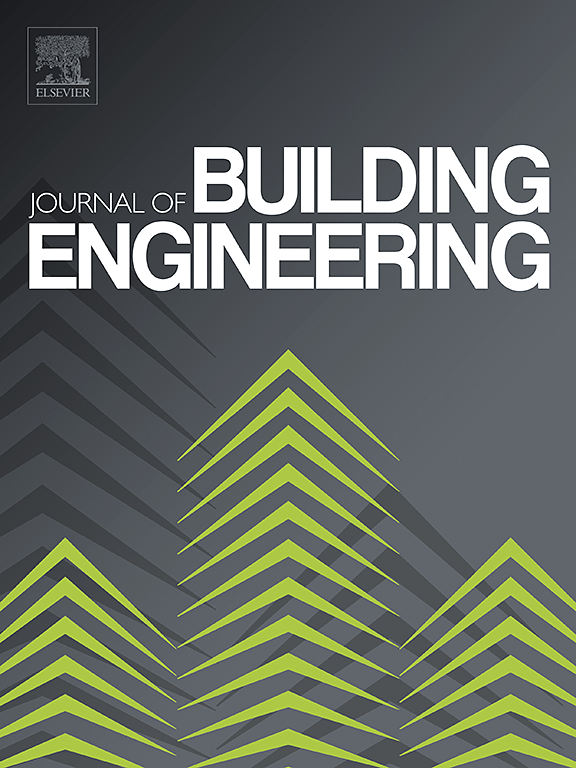基于通量的热问题新方法的专业化。有投射阴影的建筑物玻璃幕墙的数值研究
IF 6.7
2区 工程技术
Q1 CONSTRUCTION & BUILDING TECHNOLOGY
引用次数: 0
摘要
建筑幕墙玻璃板中不均匀的温度分布会导致热应力超过材料强度,这种临界状态通常被称为 "热冲击"。在此,我们将最近提出的一种基于通量的热问题变分方法应用于建筑玻璃,该方法考虑了气候作用导致的热交换,特别是受投射阴影遮挡影响的环境温度和太阳辐射的变化。由于未知场是热位移,其时间导数是热通量,而热通量比温度场要平滑得多,因此便于有限元方法的实施。我们使用内部定制的有限元代码来确定投射阴影的大小和形状对整体玻璃板和夹层玻璃板(也包括中空玻璃单元)温度分布的影响。我们发现,照射区和阴影区之间的温差仅受阴影形状和大小的轻微影响,但玻璃厚度决定了过渡区的宽度,从而决定了温度梯度。我们初步提出了玻璃幕墙设计的实用规则。本文章由计算机程序翻译,如有差异,请以英文原文为准。
Specialization of a new flux-based approach to thermal problems. Numerical study of glass façades of buildings with cast shadows
Uneven temperature distributions in the glass panes of building façades can induce thermal stresses exceeding material strength, a critical condition usually referred to as “thermal shock”. Here, we specialize in architectural glazing a recently-proposed flux-based variational approach to thermal problems, by considering heat exchanges resulting from climatic actions, in particular the variability of environmental temperatures and solar radiation, influenced by the shielding of cast shadows. The finite element implementation is facilitated because the unknown field is the heat displacement, whose time derivative is the heat flux, which is much smoother than the temperature field, on which the classical approach via Fourier’s law is based. A custom in-house-made FEM code is used to determine the effect of size and shape of cast shadows on temperature distribution in monolithic and laminated glass panes, also coupled in insulating glass units. We find that the temperature difference between irradiated and shadowed regions is only mildly influenced by the shape and size of the shadows, but the glass thickness determines the width of the transition zone and, hence, the temperature gradient. Practical rules for the design of glass façades are tentatively proposed.
求助全文
通过发布文献求助,成功后即可免费获取论文全文。
去求助
来源期刊

Journal of building engineering
Engineering-Civil and Structural Engineering
CiteScore
10.00
自引率
12.50%
发文量
1901
审稿时长
35 days
期刊介绍:
The Journal of Building Engineering is an interdisciplinary journal that covers all aspects of science and technology concerned with the whole life cycle of the built environment; from the design phase through to construction, operation, performance, maintenance and its deterioration.
 求助内容:
求助内容: 应助结果提醒方式:
应助结果提醒方式:


